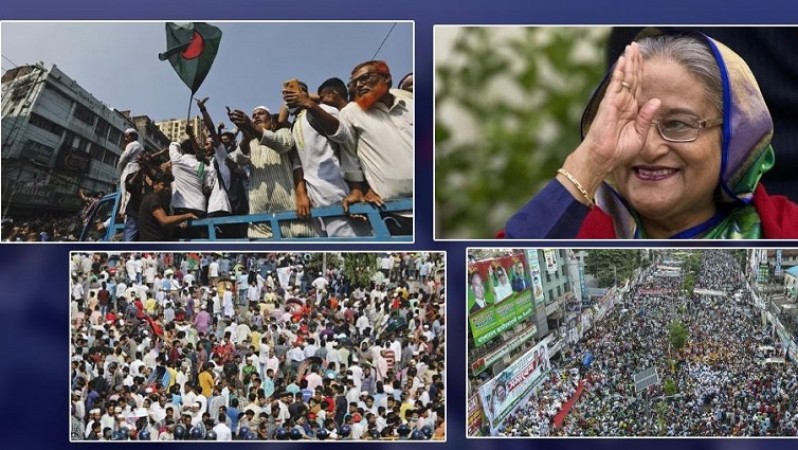
Bangladesh is all set for its general elections scheduled to take place tomorrow January 7, 2024, amidst heightened security concerns. Authorities in Bangladesh have ramped up security measures in anticipation of the elections due to escalating tensions leading up to the polls.
To ensure the smooth conduct of the elections, the government has deployed armed forces from January 3 to January 10 to assist with administrative tasks in light of the increased tensions across the country. The opposition party, BNP, has expressed its intention to boycott these elections due to the government's refusal to meet their demands, resulting in sporadic outbreaks of violence in various locations.
The current Awami League government is set to conclude its five-year term on January 29, 2024. The Inter-Service Public Relations, the media arm of the military, announced that armed forces will be stationed at key locations in every district, sub-district, and metropolitan area during this period.
Also, the Coast Guard, Border Guard Bangladesh (BGB), and Rapid Action Battalion (RAB) will also be involved in election duties to oversee security arrangements. The BGB will take charge of security arrangements in 45 bordering upazilas, while the Bangladesh Navy will operate in 19 districts, including Bhola and Barguna. Collaborative efforts between the BGB, Army, and Coast Guard are slated for 47 bordering upazilas and four coastal upazilas.
Special security measures have been outlined for polling centers in the Hill Tracts, which will be safeguarded by the Bangladesh Air Force with helicopter support. The Armed Forces Division has formed a joint cell, comprising law enforcement agencies and representatives from various ministries, which will remain active until January 10.
The main opposition party, Bangladesh Nationalist Party (BNP), led by former Prime Minister Khalida Zia, has opted to boycott the elections. BNP had requested an interim neutral government, separate from political parties, to oversee the voting process, a proposition that was rejected by Prime Minister Sheikh Hasina's government. Hasina, also the President of the ruling Awami League, is under pressure from Western nations to ensure the elections are conducted in a "free and fair" manner.
The Parliament of Bangladesh, known as 'Jatiya Sangsad,' comprises 350 seats, with 300 directly elected seats using the first-past-the-post voting system in single-member constituencies. Additionally, 50 seats are reserved for women and are proportionally elected by the members elected to the directly contested seats.
Rajasthan's Karanpur Assembly Seat Voting; Minister Surendra Pal Singh TT in Race